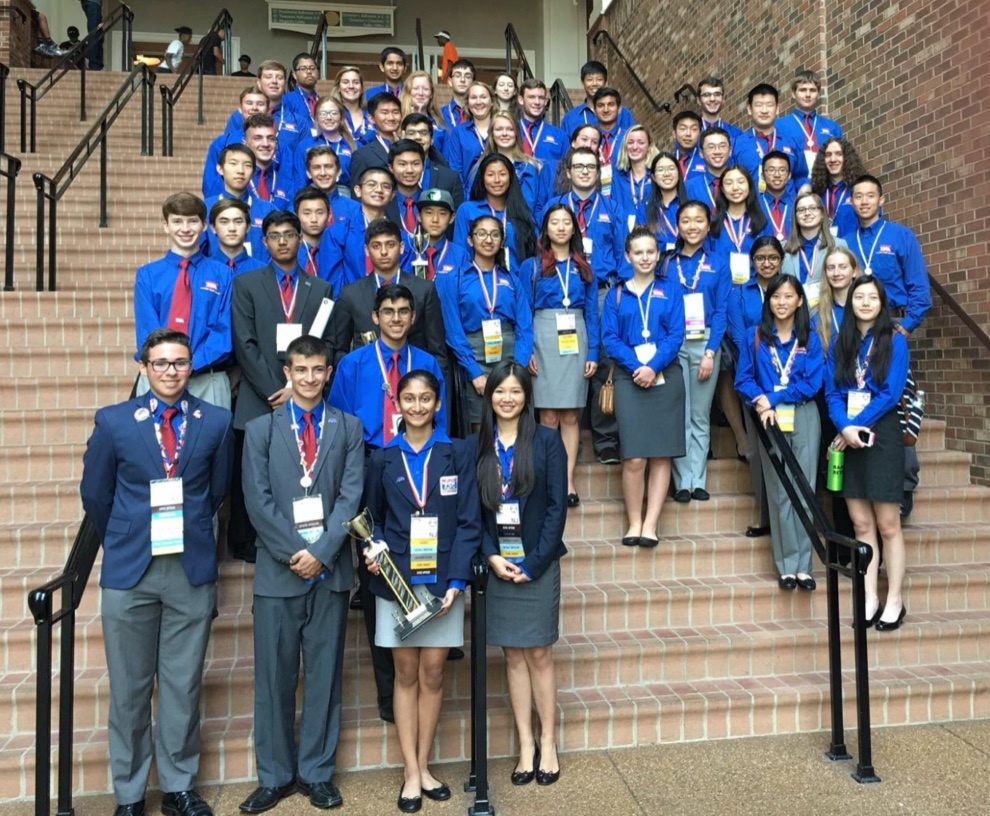
Think Skill Assessment (TSA) Preparation – Challenges and Type of Questions to Face
Skill assessment tests have become an integral part of the hiring process, educational institutions, and certification programs. It allows employers or educators to evaluate a candidate's skills, knowledge, and capabilities related to the job or field they are interested in. However, preparing for a skill assessment test can be a daunting task for many individuals. In this blog, we will discuss the challenges and the type of questions that one may face while preparing for a skill assessment test.
Challenges of Skill Assessment Preparation:
TSA and Natural Science Preparation can be challenging due to several reasons. Check out more details of Natural Science Preparation here: https://oxbridgemind.co.uk/test-tuition/tsa-tutors/. Some of the significant challenges are discussed below.
Lack of Clarity: One of the primary challenges of skill assessment preparation is the lack of clarity regarding the test's content and structure. The candidates often do not have a clear idea of what to expect from the test, which may lead to anxiety and stress.
Limited Time: Most skill assessment tests have a time limit, which adds to the pressure on the candidates. Preparing for a test while keeping in mind the time limit can be challenging.
Multiple Skill Sets: Many skill assessment tests evaluate a candidate's performance across multiple skill sets. Preparing for such tests can be challenging as the candidate needs to excel in all areas.
Complexity: Skill assessment tests are designed to evaluate a candidate's ability to solve complex problems. Therefore, the questions are often tricky and may require a considerable amount of time to solve.
Types of Questions to Face:
Now that we have discussed the challenges of skill assessment preparation let's dive into the types of questions that one may face while preparing for the test.
Multiple Choice Questions: Multiple-choice questions are the most common type of questions in skill assessment tests. They are used to test a candidate's knowledge, understanding, and application of the concepts related to the job or field.

Essay Questions: Essay questions are used to evaluate a candidate's writing skills and critical thinking ability. They may require the candidate to provide a detailed explanation of a particular concept or scenario.
Problem-Solving Questions: Problem-solving questions are designed to test a candidate's ability to solve complex problems related to the job or field. These questions often require the candidate to use critical thinking, logic, and creativity to arrive at a solution.
Simulation Questions: Simulation questions are used to evaluate a candidate's practical skills related to the job or field. These questions may require the candidate to perform a task or complete a scenario using a simulated environment.
Audio/Video Questions: Audio and video questions are used to test a candidate's ability to understand and interpret information presented in the form of audio or video. These questions may require the candidate to listen to a conversation or watch a video and answer questions based on the content.
Personality Questions: Personality questions are used to evaluate a candidate's personality traits, such as communication skills, teamwork, leadership, and problem-solving skills. These questions may require the candidate to answer questions related to their behavior in a particular situation.
Tips for Skill Assessment Preparation:
Preparing for a skill assessment test can be challenging, but with the right approach, one can overcome these challenges. Here are some tips that can help you prepare for a skill assessment test.
Understand the Test: It is essential to have a clear understanding of the test's content, format, and structure before starting the preparation. This will help you focus on the areas that require improvement.

Practice: Practice is the key to success in skill assessment tests. Regular practice can help you get comfortable with the test's format and structure.
Time Management: Time management is crucial while preparing for a skill assessment test. Make sure to allocate sufficient time to each section and practice working under time constraints.
Identify Your Weaknesses: Identify your weaknesses and work on improving them. This will help you focus on the areas that require improvement and ensure that you are fully prepared for the test.
Use Study Materials: Use study materials such as textbooks, online resources, and practice tests to prepare for the test. This will help you get familiar with the test's content and format.
Stay Calm: It is important to stay calm and focused during the test. This will help you perform at your best and ensure that you do not make any mistakes due to stress or anxiety.
Scope of TSA - What to Do After TSA completion?
Now that we have discussed the challenges and types of questions to face in skill assessment tests, let's discuss the scope of TSA and what to do after completing it.
Scope of TSA:
Skill assessment tests are used in various fields such as employment, education, and certification programs. The scope of TSA is vast, and it can provide numerous benefits to individuals and organizations. Some of the significant benefits of TSA are discussed below.
Employment Opportunities: TSA can help individuals showcase their skills and knowledge related to a particular job. It can provide a competitive edge over other candidates and increase the chances of getting hired.

Career Advancement: TSA can help individuals identify their strengths and weaknesses related to their job or field. This can help them focus on their weaknesses and improve their skills, leading to career advancement.
Personal Development: TSA can help individuals develop their skills and knowledge related to their job or field. This can lead to personal development and growth, both professionally and personally.
Education: TSA can be used by educational institutions to evaluate the student's skills and knowledge related to a particular subject or course. It can help identify the areas where the students need improvement and provide them with personalized learning opportunities.
Certification Programs: TSA can be used by certification programs to evaluate the candidates' skills and knowledge related to a particular certification program. It can help ensure that the candidates have the necessary skills and knowledge required to obtain the certification.
What to Do After TSA Completion:
After completing a skill assessment test, individuals can take several steps to maximize the benefits of the test. Some of the significant steps that individuals can take are discussed below.
Analyze the Results: After completing the test, it is essential to analyze the results to identify the areas where the individual needs improvement. This can help individuals focus on their weaknesses and improve their skills.
Create a Development Plan: Based on the results of the test, individuals can create a development plan that outlines the areas where they need improvement and the steps they will take to improve their skills.
Continue Learning: Skill assessment tests provide individuals with an opportunity to identify their strengths and weaknesses related to their job or field. It is essential to continue learning and improving one's skills to stay competitive in the job market.
Update Resume and LinkedIn Profile: After completing a skill assessment test, individuals can update their resume and LinkedIn profile to highlight their skills and knowledge related to the job or field.

Explore Career Opportunities: Skill assessment tests can provide individuals with a competitive edge over other candidates. It is essential to explore career opportunities and apply for jobs that align with the individual's skills and knowledge.
Conclusion:
In conclusion, skill assessment tests provide individuals with numerous benefits, including employment opportunities, career advancement, personal development, education, and certification programs. After completing a skill assessment test, individuals can take several steps to maximize the benefits of the test, including analyzing the results, creating a development plan, continuing learning, updating their resume and LinkedIn profile, and exploring career opportunities.
Skill assessment tests are an essential part of the hiring process, educational institutions, and certification programs. Preparing for these tests can be challenging due to various factors such as lack of clarity, time constraints, multiple skill sets, and complexity of questions. However, with the right approach and preparation, one can overcome these challenges and perform well in the test. Understanding the test's content, format, and structure, regular practice, time management, identifying weaknesses, using study materials, and staying calm are some of the tips that can help you prepare for a skill assessment test.

















